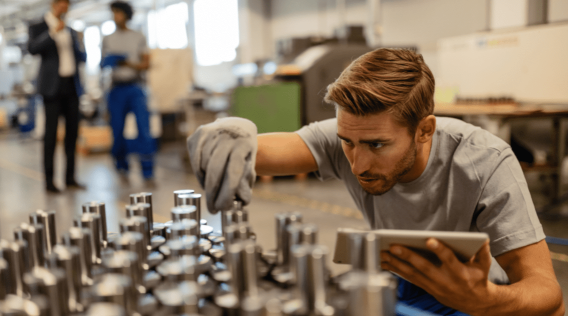When it comes to cookware, two materials that are often compared to each other are cast iron and aluminum. Both have their own unique properties and benefits, but which one is truly the better option? In this article, we’ll take a closer look at the strengths and weaknesses of each material to help you decide which one is right for your kitchen.
Cast Iron Cookware
Cast iron cookware has been around for centuries and is known for its durability and ability to retain heat. It is made by pouring molten iron into a mold, hence the name “cast” iron. The resulting cookware is heavy and thick, which makes it ideal for cooking dishes that require slow and steady heat, like stews and casseroles.
One of the biggest advantages of cast iron cookware is that it is nearly indestructible. It can withstand high temperatures, is resistant to chipping and cracking, and can last for generations if properly cared for. Cast iron is also great at retaining heat, which means it stays hot even after the heat source has been turned off. This makes it perfect for searing meats and achieving that perfect crust on your dishes.
Cast iron cookware has a few downsides as well. It is extremely heavy, which can make it difficult to move around the kitchen. This can also make it difficult to clean, as it requires some elbow grease to remove any stuck-on food. Cast iron is also prone to rusting if it is not properly seasoned, which can be a challenge for new users.
Aluminum Cookware
Aluminum cookware is a popular choice for many home cooks due to its lightweight and affordable price. It is made by pressing sheets of aluminum into the desired shape, which makes it much lighter than cast iron. This makes it easy to handle and maneuver around the kitchen, especially when dealing with large pots and pans.
One of the biggest advantages of aluminum cookware is that it heats up quickly and evenly. This means that your food will cook more evenly and you won’t have to worry about hot spots or uneven cooking. Aluminum is also resistant to rusting, which makes it a low-maintenance option for busy kitchens.
However, aluminum cookware also has some downsides. It is not as durable as cast iron, which means it can warp or dent over time. It is also more prone to scratching, which can affect its performance and appearance. Additionally, aluminum is not great at retaining heat, which means it cools down quickly and may not be the best option for dishes that require slow cooking.
Which One is Right for You?
So, which material is better for your kitchen? It ultimately comes down to your personal preferences and cooking style. If you’re looking for a durable, heavy-duty option that can withstand high temperatures and retain heat for a long time, then cast iron is the way to go. However, if you’re looking for a lightweight, affordable option that heats up quickly and cooks food evenly, then aluminum is the better choice.

It’s also worth considering what types of dishes you usually cook. If you frequently make stews, roasts, and other slow-cooked dishes, then cast iron may be your best bet. If you prefer dishes that require quick cooking, like stir-fries or sautés, then aluminum may be the better option.
In conclusion, both cast iron and aluminum have their own strengths and weaknesses, and the decision ultimately comes down to your personal preferences. Consider what types of dishes you usually cook, how much weight you’re comfortable handling, and how much maintenance you’re willing to do. With the right cookware, you can elevate your cooking skills and make delicious meals for years to come.
-

- Tixomolding maqnezium hissələri və komponentləri mobil telefonun orta lövhəsi
-

- Thixomolding hissələri və komponentləri cib telefonunun orta lövhəsi işlənir
-

- Magnesium alloy die-casting LED display frame
-

- Uşaqlar üçün velosipedlər 3-16 yaşlı uşaqlar üçün uşaq velosipedləri /OEM körpə uşaq velosipedi Uşaq dağ velosipedləri 2022
-

- OEM Die tökmə istehsalçısı uşaqlar təkan velosipedi üçün maqnezium lehimli təkər istehsal edir
-

- Maqnezium ərintisi tökmə Avtomobil hissələri Yan pilləli Qaçış lövhəsi

 0086-750-5616188
0086-750-5616188 +86 13392089688
+86 13392089688 sales@zhongmei-tech.com
sales@zhongmei-tech.com







